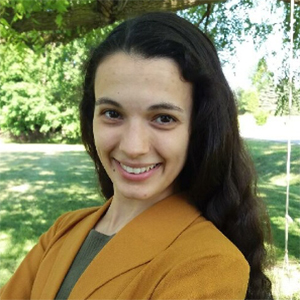In This Article
- How to Become a Holistic Health Practitioner
- Holistic Medicine Schools
- Certification Requirements
- Careers in Holistic Health
- Holistic Practitioner Salaries
- Holistic Nutrition Training
- Holistic Skin Care Careers
- History of Holistic Health
- Holistic Nursing Careers
Explore a Career in Holistic Health

Holistic health practices are becoming more mainstream, resulting in increased opportunities for those interested in the study of whole-body care.
A quick look at the news or social media shows that many people are increasingly interested in wellness and seeking out care that goes beyond a standard office visit.
From acupuncture and Ayurvedic medicine to massage therapy and nutrition counseling, holistic health careers are on the rise.
What was once seen as a fringe philosophy is also getting more respect from Western medicine. Together, these factors have brought holistic health into the mainstream.
“More and more states are starting to increase scope and licensure for holistic practitioners, and more mainstream institutions are starting to bring in practitioners as part of their care team to provide more comprehensive approaches to their patients’ conditions,” says Jennifer Bennett, ND, LAc, a naturopath and professor at Bastyr University. “Increased scope of insurance coverage is also helping (elevate) trust in these modalities.”
All that growth makes now a great time to get started on a holistic health career. But what does that life trajectory entail?
What Does a Career in Holistic Health Look Like?
Holistic health isn’t one specific career. Rather, it’s an overarching philosophy of treatment and patient care. Holistic health careers span a wide range.
You could select a career that focuses on a specific treatment method, like massage therapy and acupuncture. If you’re looking to provide care on a broader scope, you could practice natural medicine as a naturopath.
No matter which holistic health career you choose, you’ll be guided by the same principles. All holistic health practices approach care from a mindset that includes:
In short, holistic health is healthcare that looks at a person rather than a diagnosis.
Holistic Health Careers: Beyond Western Medicine
Careers in holistic health and Western medicine are based on different practices.
Western medical careers are focused on standard medical practices that treat diseases and symptoms with very specific modalities and methods associated with Western medicine. Some people are put off by the busy, clinical nature of more mainstream Western treatment paths.
Holistic health careers, on the other hand, allow practitioners to focus on the whole person. They can develop treatments that are specific to the person in front of them, often incorporating measures that address a person’s mental and spiritual health, in addition to their physical health.
Both careers allow practitioners to help people live better, healthier lives. The right path for you comes down to the philosophies that you want to guide your patient care, and the type of care you want to provide.
Typical Career Paths and Workplaces
There are a lot of options when it comes to working in the field of holistic health. While you can use holistic practices in just about any healthcare role, several careers are more holistic in nature than others. These are the jobs you probably think of when you think of holistic health.
If you’re looking to make holistic health your focus, rather than incorporating it into a more mainstream healthcare career, consider one of these options.
Acupuncturist
What you’ll do
Use specialized needles or pressure at specific points on the body to promote healing, reduce pain, and improve overall health
Degree you need
Master’s or doctorate
Where you can work
Ayurvedic Practitioner
What you’ll do
Ayurvedic sessions provide whole body treatments using cleansing, guided meditation, and herbal remedies
Degree you need
Master’s
Where you can work
Energy Healer
What you’ll do
Use crystal healing, sound therapy, or radiation to help align chakras and other body energies for improved health and wellness
Degree you need
Associate’s or bachelor’s
Where you can work
Herbalist
What you’ll do
Assess patients and prescribe and make herbal medicine remedies to treat pain, disease, and more
Degree you need
Bachelor’s
Where you can work
Life Coach
What you’ll do
Help clients along their life paths by giving them tools and strategies to use in their careers, relationships, and everyday life
Degree you need
Certificate or bachelor’s
Where you can work
Massage Therapist
What you’ll do
Use a variety of massage techniques to help patients get pain relief by applying pressure to muscle groups and trigger points.
Degree you need
Certificate or associates
Where you can work
Midwife
What you’ll do
Provide care during pregnancy and help safely deliver infants
Degree you need
Depending on the type of midwife you want to be, master’s, certification, or training program
Where you can work
Naturopath
What you’ll do
Provide holistic primary care that includes diagnosing patients, prescribing herbal remedies, and performing treatments
Degree you need
Doctorate
Where you can work
Nutritionist
What you’ll do
Educate patients on how diet can affect their health and help them develop healthy eating plans
Degree you need
Bachelor’s or master’s
Where you can work
Whole health leadership
What you’ll do
Lead your organization to integrate whole health practices and advocate for systemic change that prioritizes whole health principles
Degree you need
Master’s or doctorate
Where you can work
Can Western Medicine Practitioners Incorporate Holistic Practices?
Western Medicine practitioners can absolutely incorporate holistic practices into their patient care. In fact, this is becoming increasingly common. More holistic practices are being used in primary care offices and other Western medical facilities all the time. You might see this referred to as “complementary” or “integrative” medicine.
This can work in a variety of ways. For example, a psychologist might use hypnotherapy to help a patient deal with a traumatic memory, a physical therapist might use the Alexander Technique to help a patient improve their posture, and a chiropractor might use massage therapy to help a patient attain greater pain relief.
Plus, holistic methods are often used to help improve general wellness and to treat specific conditions such as:
Brittany Ferri, a New York-based occupational therapist who routinely incorporates holistic treatments into her practice and has authored a textbook on the subject, says these complementary practices add significant value to overall care.
“Holistic methods can increase patient engagement, optimize patient outcomes, and boost treatment compliance,” Ferri says. “These also empower patients to take a more active role in managing and maintaining their health condition so they can live fuller, more productive lives.”
Holistic Health: Moving into the Mainstream
The rise of holistic practice is particularly notable among cancer patients. People with cancer are increasingly using holistic methods to help address pain, nausea, and other symptoms. In fact, recent studies have found that one-third to one-half of cancer patients in the United States use some form of holistic care as part of their cancer treatment.
Holistic Health and Telemedicine:
Can They Work Together?
Telemedicine is an increasingly popular method of delivering patient care. Using telehealth, providers—including those offering holistic care—can reach patients without the need for an office visit. This can be especially helpful in rural areas where patients might not have access to health providers. While it might not seem like hands-on holistic techniques are a match for telemedicine, they actually can be.
“While many holistic health practices, such as acupuncture and massage therapy, cannot be done via telehealth, there are many other self-management techniques that are perfectly suited for a telehealth model,” says Ferri. “Providers can guide individuals through yoga sequences, Reiki, meditations, reflexology, and other modalities virtually. There are even some substitutes for modalities like acupuncture and massage therapy, as therapists can lead interactive sessions teaching individuals self-massage techniques to relieve certain accessible pain points.”
At Home Holistic Health
Acupuncturists may be able to teach patients how to stimulate certain parts of their meridians, or energy pathways, using pressure from their hands. This is an alternative form of acupuncture that does not use needles, called acupressure. While the substitutes for these modalities are not ideal in the long term, they can help individuals play an active role in managing some of their symptoms at home.
What Can I Earn?
With so many different careers under the holistic health umbrella, there is a wide range of salaries in the field. Your specific holistic health career, along with your experience, employer, and client base, can all make a huge impact on your salary.
Licensing and Certification
You’ll need to make sure you’ve explored the required licenses and certifications before you begin your holistic health practice. They’re required for many holistic health careers in most states, but not all.
Whether or not it’s required, certification can show your future clients that you’re a trusted professional who can provide safe and effective care. Certification will depend on the career path you choose. In most cases, you’ll need to submit proof of your education and pass an exam before you can be certified.
Education
Your holistic health education will depend on the career path you want to take. Some paths, like massage therapy, can be completed very quickly. You can earn a massage therapy certification in as little as a few weeks or choose to spend two years earning an associate degree.
Other career paths can take a much longer investment in your education. Naturopaths, for example, need to have doctoral degrees and programs are very competitive.
No matter what path you take, it’s important to make sure that your program is accredited and will allow you to practice in your state. Not all states regulate all holistic health careers, but many do. In addition to state regulations, you need to make sure your education will allow you to apply for any certification your holistic health field offers.

Written and Reported by:
Stephanie Srakocic
Contributing Writer

With professional insight from:
Jennifer Bennett, ND, LAc
Naturopath and Professor, Bastyr University

Brittany Ferri, MS, OTR/L, CPRP
Holistic Occupational Therapist
